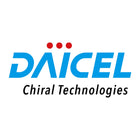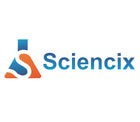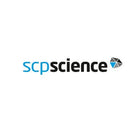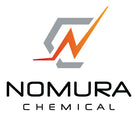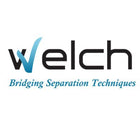RF Coil Copper for Agilent 7700 / 8800 / 8900
Glass Expansion Part Number: 70-900-7700C
Equivalent to OEM Part Number: G3280-60638
Note:
- To ensure correct installation, the Installation Kit 70-900-7500T is required. This is not included and must be ordered separately. It is re-useable so only needs to be ordered once.
RF Coil Options for Agilent:
- 70-900-7700C - Agilent 7700/8800/8900, Copper
- 70-900-7700S - Agilent 7700/8800/8900, Silver
- 70-900-7700G - Agilent 7700/8800/8900, Gold
- 70-900-7800C - RF Coil for Agilent 7800/7900, Copper
- 70-900-7800S - RF Coil for Agilent 7800/7900, Silver
- 70-900-7800G - RF Coil for Agilent 7800/7900, Gold
RF Coils
Glass Expansion Coils are produced from the highest quality raw materials and plated using prescribed methods to obtain maximum RF (Radio Frequency) transmission efficiency. There are numerous papers published on RF transmission with regard to conductor and coating resistance.
Advantages of Glass Expansion RF Coils:
- High quality and consistent plating of our coils promotes extended coil life
- Each coil is supplied on a plastic former ensuring correct dimensions and easier installation
- Each coil is supplied in a special protective container to ensure correct dimensions are maintained, and the coil arrives corrosion free
- Correct alignment of the coil with respect to the torch body reduces devitrification of the outer tube
- Reusable alignment tools ensure correct installation every time. Our CD with Do-It-Yourself instructions saves time
Plasma Generation
The generation of a plasma is the result of complex RF circuit design. Many of the environmental problems that affect the coil have little effect on the operation of the RF generator, except that corrosion produces an added load. In particular, corrosion of the coil has a significant effect on the performance and robustness of the plasma. Changing to a new coil reduces the load on the RF generator, since the current required to produce the same level of power is reduced as the resistance of the coil is reduced. Hence, having a coil with little or no corrosion has a positive effect on the longevity of the PA (Power Amplifier) Tube or RF FET's (Field Effect Transistor) due to the lower current required.
Conductivity
This can be explained by the conductivity of pure metals and oxides. Pure grade copper has an IACS (International Annealed Copper Standard) of 100, silver has an IACS of 105, and Gold has an IACS of 74. In referencing the ICAS system a higher IACS indicates higher conductivity. The following websites contain information on the IACS for various metals.
The formation of an oxide on the surface of the coil reduces the conductivity of the coil and hence it's performance. Depending on the instrument and the control feedback system, this can be seen by a reduction in the intensity for an element of the same concentration over the life of the coil.
Corrosion Resistance
From a conductivity point, the best material to make a coil from would be pure silver but, due to the high cost this is impractical. Copper is the next best material, but the copper must be of an acceptable grade and contain a minimum of contaminants. The copper used by Glass Expansion has a purity of 99.9% minimum. Once the base material is fixed, the environmental conditions under which the coil is placed need to be considered. The environmental conditions in the torch box include corrosive gases and high temperatures. These vary with instruments and plasma orientation (Radial or Axial). This leads to the use of plating of the copper coils to help prevent unwanted corrosion, with the two most common materials being Silver and Gold. The plating process is vital to the conductivity of the coil. There are many different types of plating procedures that result in varying degrees of conductivity. The procedure used by Glass Expansion does not use additive brighteners or corrosion inhibitors in the plating bath. This produces a dull coating, which is then manually polished to give a final bright appearance, resulting in a coil that retains the highest possible IACS rating.
Coils should be continually cleaned to remove the build up of surface oxidation. The rate of corrosion is higher for Copper, followed by Silver, then Gold. There are however, distinct advantages to using Silver. The plating process for Silver leaves a more even surface allowing fewer sites for chemical attack. The conductivity of Silver is much higher than that of Gold, but Gold does offer a greater protection in more aggressive environments.
Glass Expansion recommends coils in Silver and Gold due to better conductivity and corrosion resistance.
- There are fewer problems with a silver-plated coil with arcing between windings, compared to the standard copper coil. This in turn lengthens the life of the coil.
- Another advantage is our installation guide and alignment tools. These allow Do-It-Yourself installations, saving the expense of a service engineer. These installation guides written on Compact Discs, will show how to set up and align your torch and coil to the exact specifications. This reduces torch wear due to misaligned coils, especially in axial systems.
- All coils produced by Glass Expansion will be shipped with a coil former. This former holds the coil in the correct dimensions during shipping and installation. The tool can also be used to check the dimensions from time to time, or to reset after an accidental knock.
- The packaging of Glass Expansion's coils will ensure that the coil arrives at the customer's site, in the correct dimensions.
Product title
Vendor
|
Product title
Vendor
|
Product title
Vendor
|
Product title
Vendor


